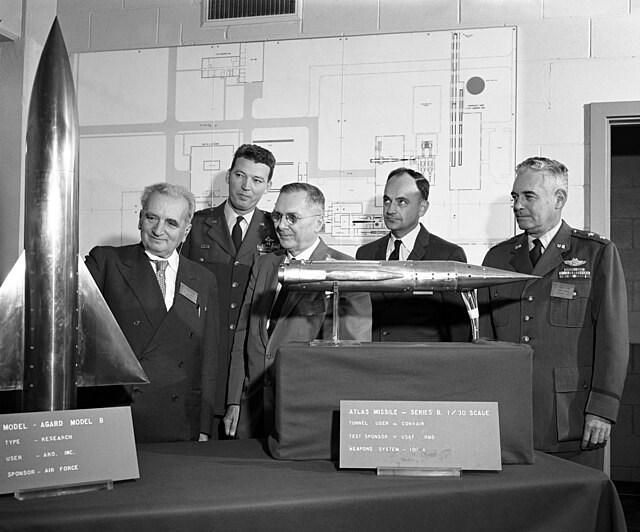National Medal of Science
The National Medal of Science is an honor bestowed by the President of the United States to individuals in science and engineering who have made important contributions to the advancement of knowledge in the fields of behavioral and social sciences, biology, chemistry, engineering, mathematics and physics. The twelve member presidential Committee on the National Medal of Science is responsible for selecting award recipients and is administered by the National Science Foundation (NSF).
Obverse of the medal
Presentation of the National Medal of Science to Theodore von Kármán by President Kennedy.
Medal (reverse)
2023 award ceremony
Theodore von Kármán, was a Hungarian-American mathematician, aerospace engineer, and physicist who worked in aeronautics and astronautics. He was responsible for crucial advances in aerodynamics characterizing supersonic and hypersonic airflow. The human-defined threshold of outer space is named the "Kármán line" in recognition of his work. Kármán is regarded as an outstanding aerodynamic theoretician of the 20th century.
Von Kármán in 1957
Von Kármán (center) during his work at the Jet Propulsion Laboratory in 1940
Theodore von Kármán, left, is joined by Air Force and NASA officials while inspecting two of the models used in the high velocity, high altitude wind tunnels at Arnold Air Force Base, 1959. The missiles are Agard-B and Atlas Series B.
Presentation of the National Medal of Science to Theodore von Kármán by President Kennedy.







